Why Do Exams Cause Stress?
Part 1 of our Exam Stress Series
- Part 1: Why Do Exams Cause Stress?
- Part 2: How To Reduce Exam Stress with Physical Activity
- Part 3: How To Reduce Test Anxiety
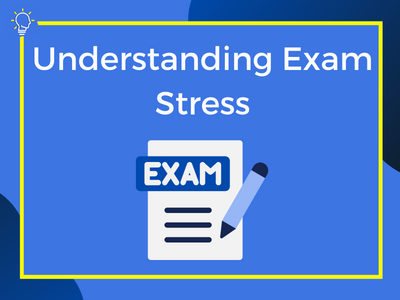
Contents
Final exams are practically synonymous with stress. This final test of knowledge often covers an entire semester’s worth of information and heavily influences one’s overall success and grade in a class. And, of course, this high-pressure experience takes place across multiple classes with vastly different subject matters. Moreover, students are expected to complete all of this in just a few weeks. So, it is no surprise that this type of environment breeds a lot of stress!
Unfortunately, no aspect of a student’s life is untouched by the stress of the exam period. Stress negatively affects one’s academic performance, physical well-being, and mental health. Think of it as an interconnected loop, where the strain in one area of a person’s life triggers problems in another.
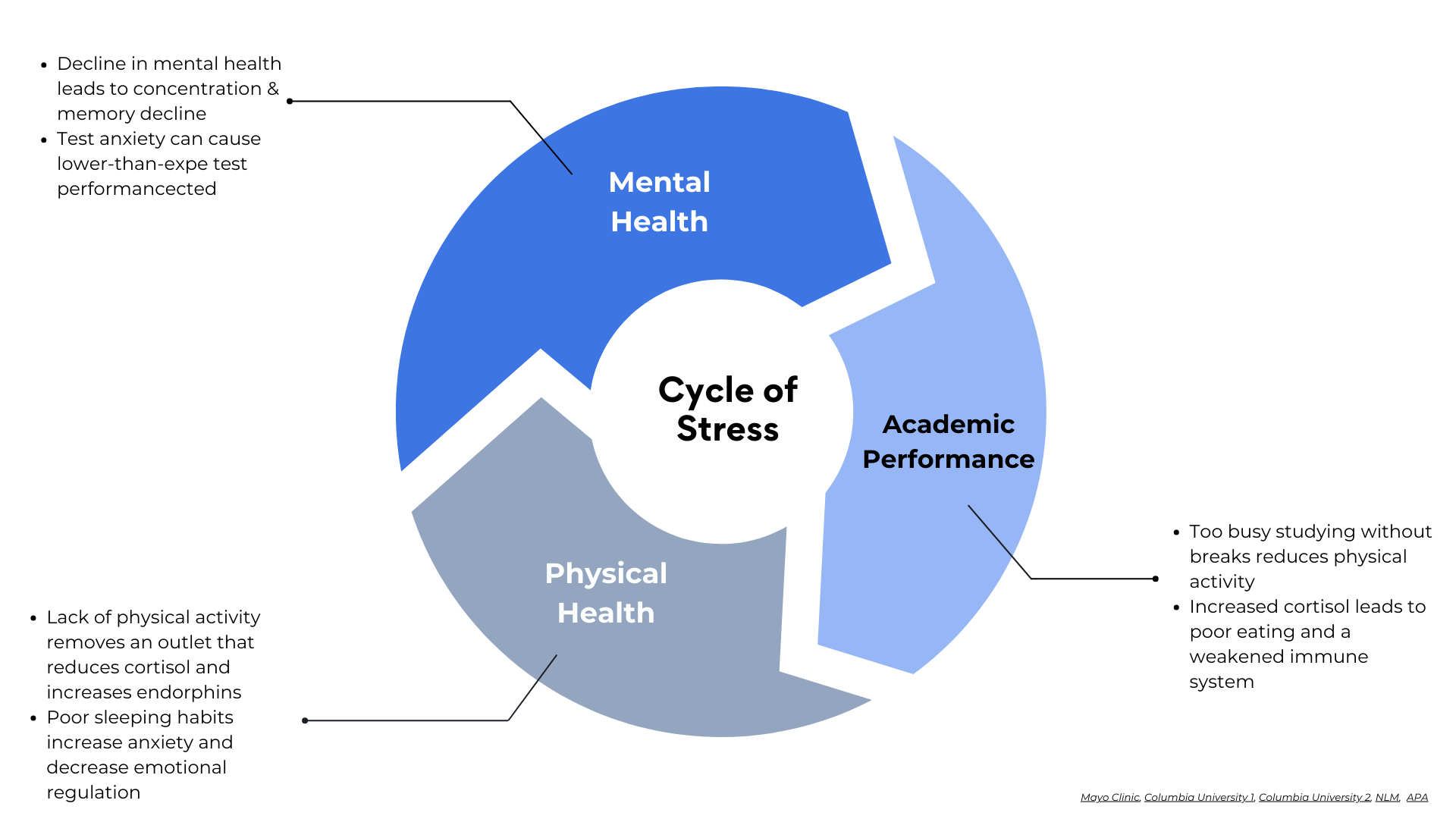
In this article, we will examine what exactly stress is and how it can affect you during exams. In future articles, we will look at coping mechanisms and methods of prioritizing self-care to maintain wellness during one of the most intense periods of the year.
Understanding Stress #
Stress can be defined as, “When you experience changes or challenges (stressors), your body produces physical and mental responses” (Cleveland Clinic). With 62% of women & 51% of men in America ages 18-34 saying they are completely overwhelmed by stress (APA), it is safe to say that the majority of young Americans are struggling to cope with their stress management.
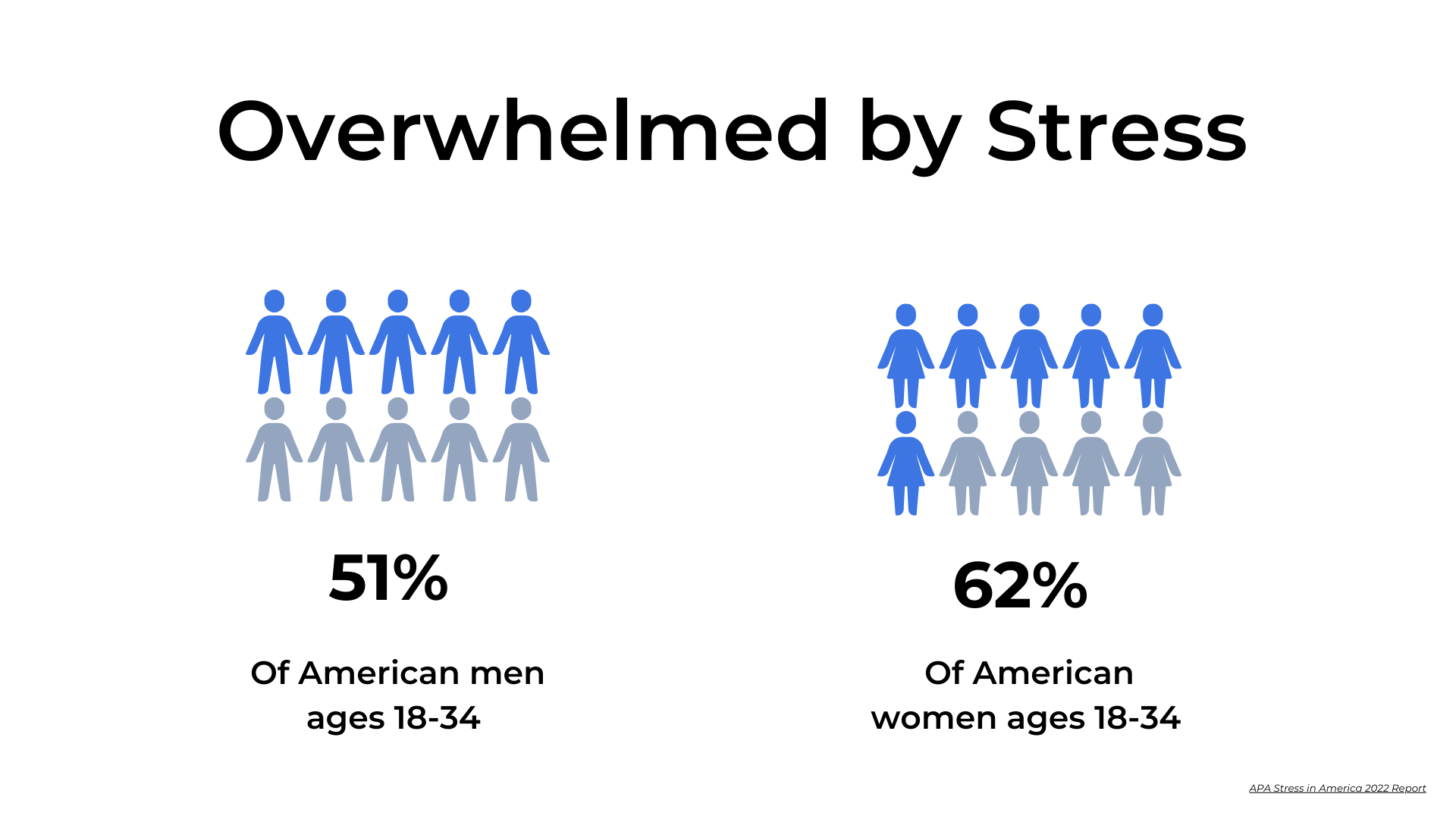
Stress in and of itself is not a bad thing. It is a survival function that produces the “flight or fight'' response needed to perform at elevated levels in the face of a dangerous or challenging situation (Medical News Today). When it comes to exam-specific stress, we can look at how students push themselves to retain & regurgitate large volumes of information in a short amount of time. While this phenomenon of “cramming” can lead to a boost in test scores (Washington Post), it is a double-edged sword, as students’ long-term retention and overall understanding of the subject is not nearly as robust as their spaced-out studying counterparts (National Library of Medicine).
Additionally, prolonged stress can cause numerous other issues including disruption of sleep, increased irritability, and poorer test performance (APA). With exams consistently ranked as a top 3 stressor for students (Research.com), it is important to understand how stress affects us and what solutions can be used to help reduce its negative effects.
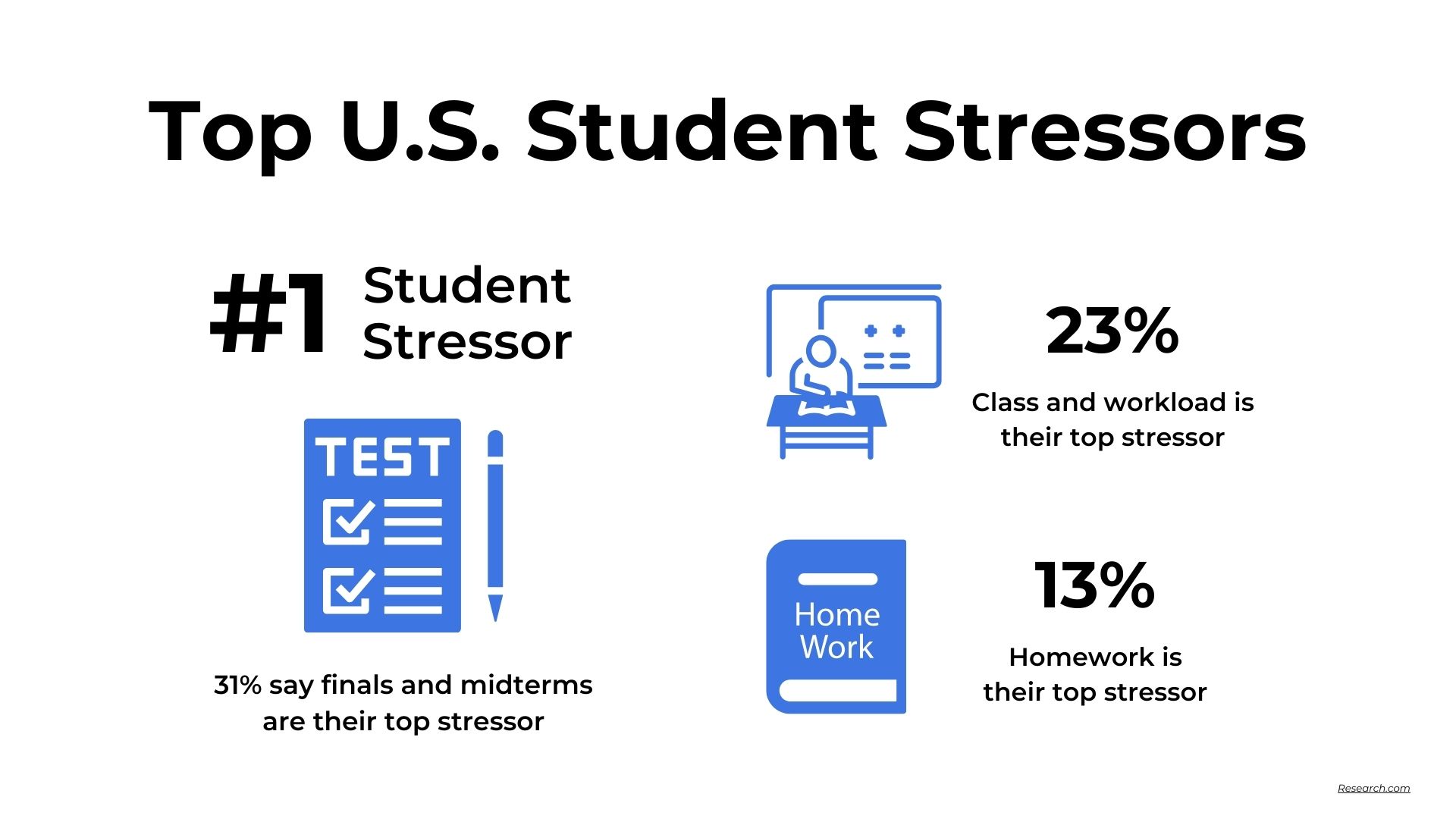
Stress Effects #
Performance #
Stress can significantly harm a student's exam performance. Since 2019, The ACHA-National College Health Assessment consistently ranked stress as one of the largest negative factors in academic performance. Highly stressed individuals reported higher rates of concentration problems, indecisiveness, and forgetfulness than their non-stressed counterparts (APA).
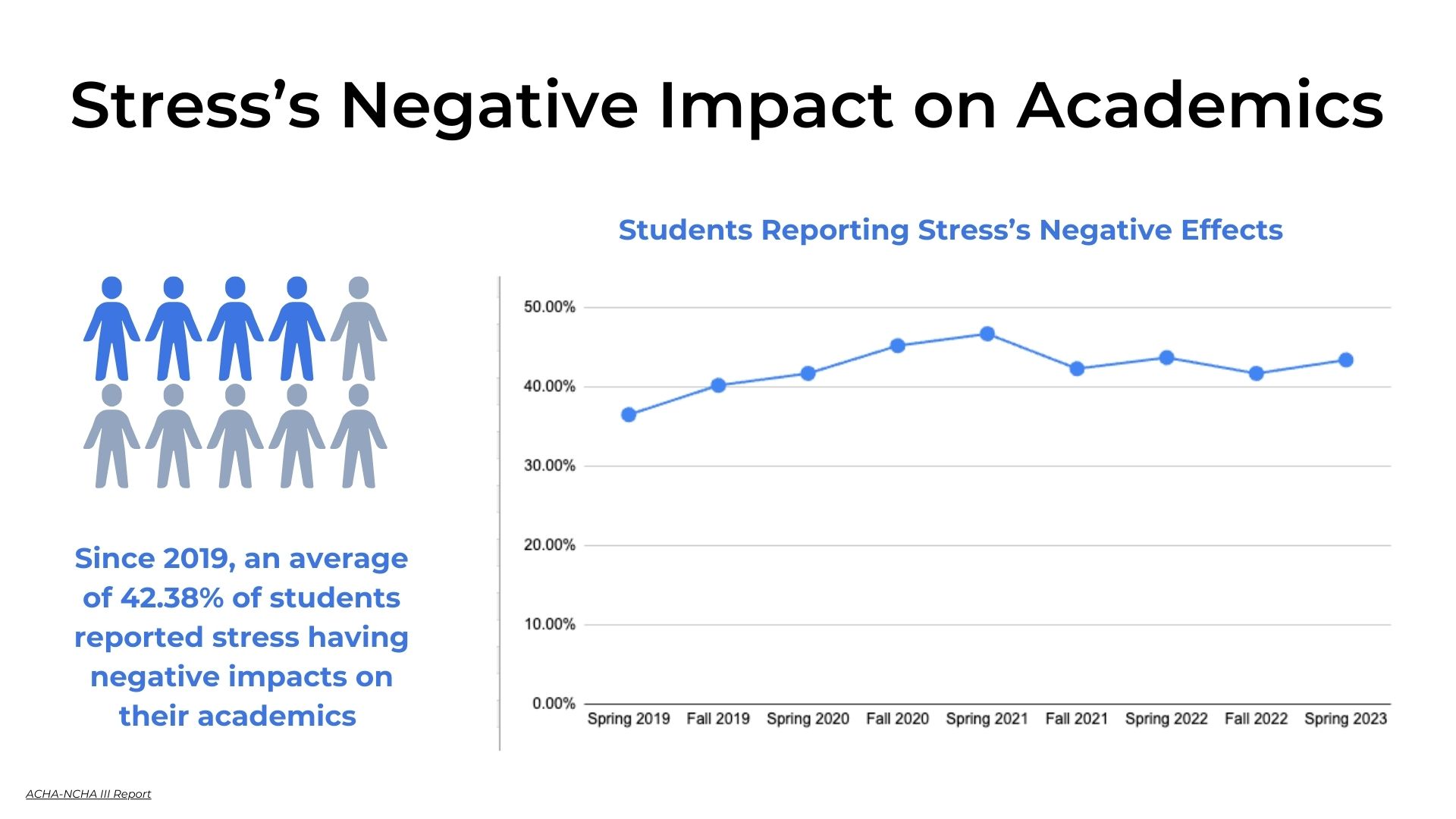
With so many students already overwhelmed by their workload throughout the year, it’s not surprising that exam periods exacerbate stress’s negative effect on academic performance. Even indirectly, stress contributes to problems sleeping, concentrating, and retaining information, all of which inhibit peak test-taking performance. MIT's Education Finance & Policy published a study suggesting that increases in cortisol levels can indicate how a student will perform on an exam, as students with the highest fluctuation in cortisol levels during test week performed worse than expected on their high-stakes exams. The students with the highest cortisol levels had a decline in their academic performance as well as those with decreased cortisol levels that became too overwhelmed and “checked” of the exam process entirely.
The increase in stress during the exam period stems not only from heavy workloads but also from outside pressures. Students must contend with the weight of their future careers, socio-economic challenges, familial expectations, scholarship qualifications, and many other factors all while trying to perform well on multiple tests. All of this is to say that exam stress stems from many different sources and wreaks havoc on academic performance as well as physical and mental health.
Physical Health #
Prolonged stress is not kind to one’s bodily health. In fact, the American Psychological Association’s Stress in America 2022 report, states that 76% of Americans report stress negatively impacting their health. Aside from mental health, eating habits (33%) and physical health (32%) were reported as the areas of life most adversely impacted by stress.
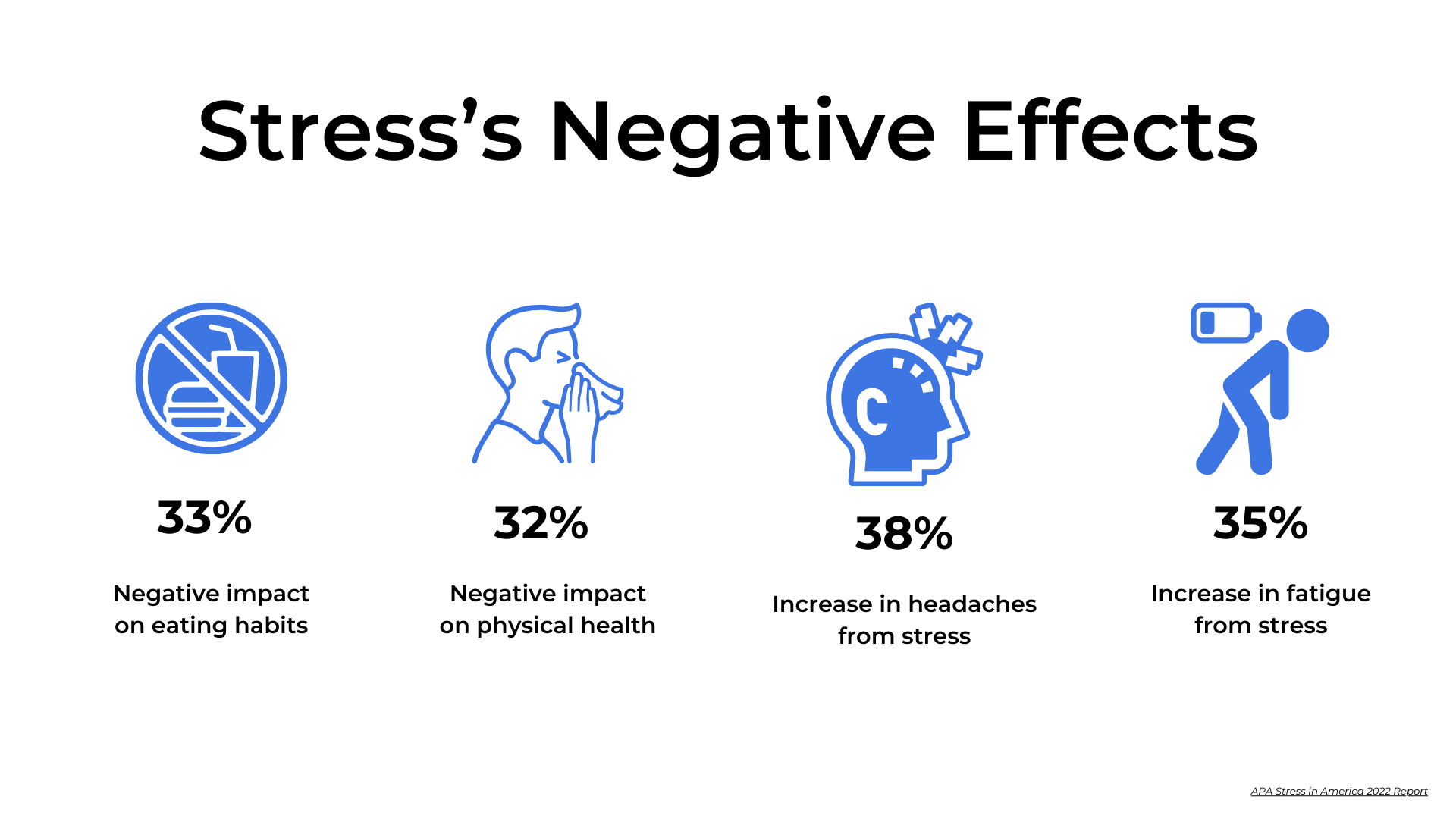
Why is stress so harmful to our physical well-being? Higher levels of the stress hormone, cortisol, put a strain on the human body. Stressed individuals see increased rates of headaches (38%) and fatigue (35%) (APA) as well as sleep deprivation, weight gain, and proclivity towards illness (Mayo Clinic). The latter two impacts are especially cortisol-sensitive. “When your cortisol level go[es] up, it sets off a chain reaction. The hormone raises your blood pressure and insulin production, while simultaneously suppressing your immune system. As your insulin levels go up, your blood sugar drops, making you crave fatty, sugary foods” (Cleveland Clinic).
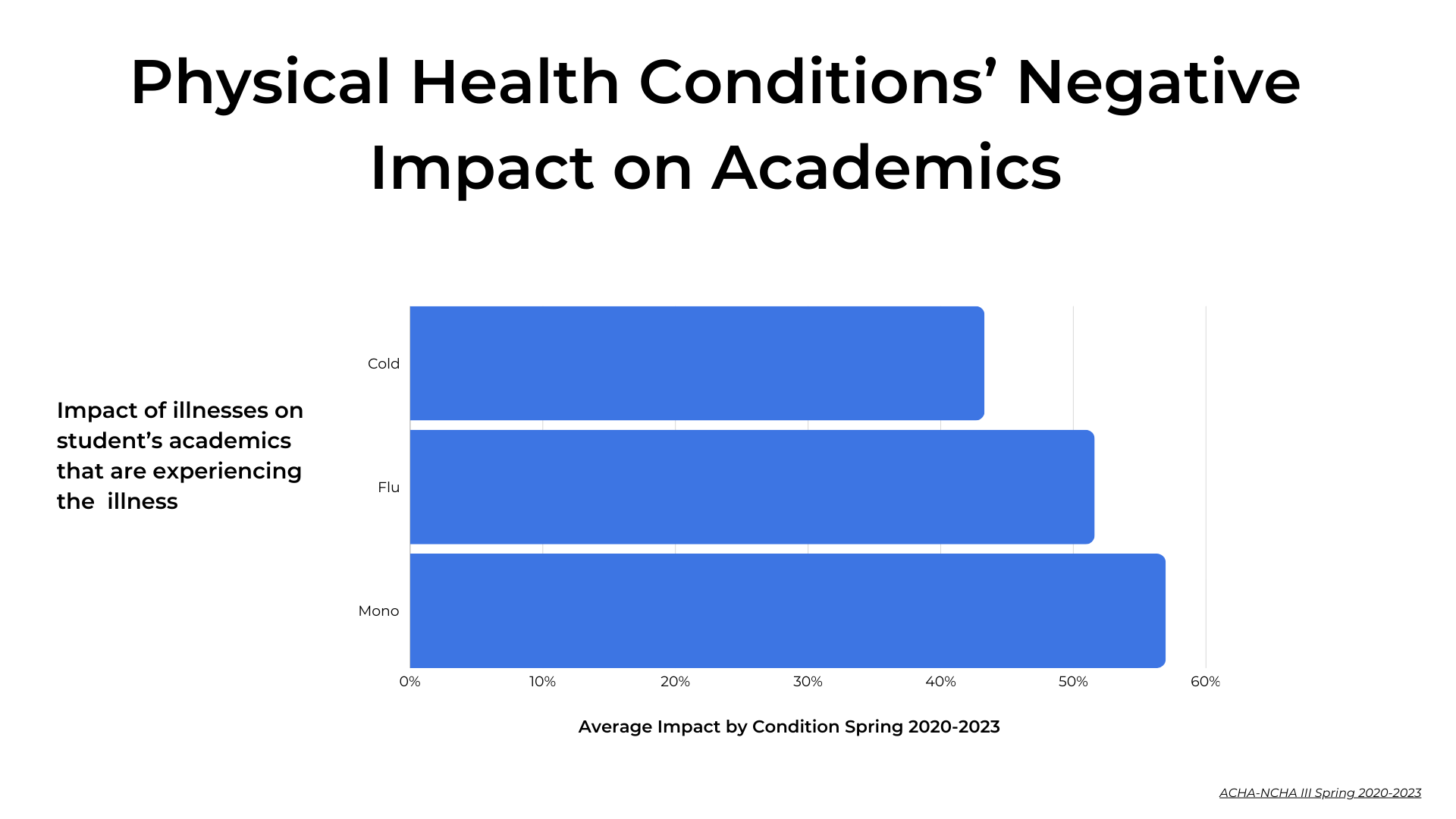
Mental Health #
When a student is already in a position of vulnerability, acute stress can be the tipping point. Mental health is often hit the hardest during times of high stress. The Stress in America 2022 report shows that mental health was the most negatively impacted health factor as a result of stress at 36%. Individuals who are experiencing mental health difficulties are particularly vulnerable to the negative effects of stress. When examining the impact of stress on mental health compared to non-stressed counterparts, the damaging domino effect is quite clear. “Adults with a higher average stress level were more likely than those with a lower average stress level to report experiencing … feeling nervous or anxious (56% vs 12%), and feeling depressed or sad (57% vs 10%) due to stress in the past month” (APA).
Examining the effects of mental health through the ACHA-NCHA III Spring 2020-2023, there is a clear trend of some mental health conditions affecting academic performance at higher rates than other non-health external factors. Those who are experiencing mental health distress such as depression, anxiety, and PTSD reported these stressors having a larger impact on their studies than students dealing with family matters, intimate partner relationships, and finances.
Academic success and mental health are inextricably linked when it comes to overall collegiate success. This is best expressed in the CCMH 2022 Report, which determined that students with, “elevated academic distress, history of a psychiatric hospitalization, and identifying as a freshman/first-year student were the most important risk factors associated with withdrawal from school.” On the other hand, students who started and stayed in counseling for academic and mental health struggles saw the most improvements across all areas of distress, therefore showing the positive impact that prioritizing mental wellness can bring.
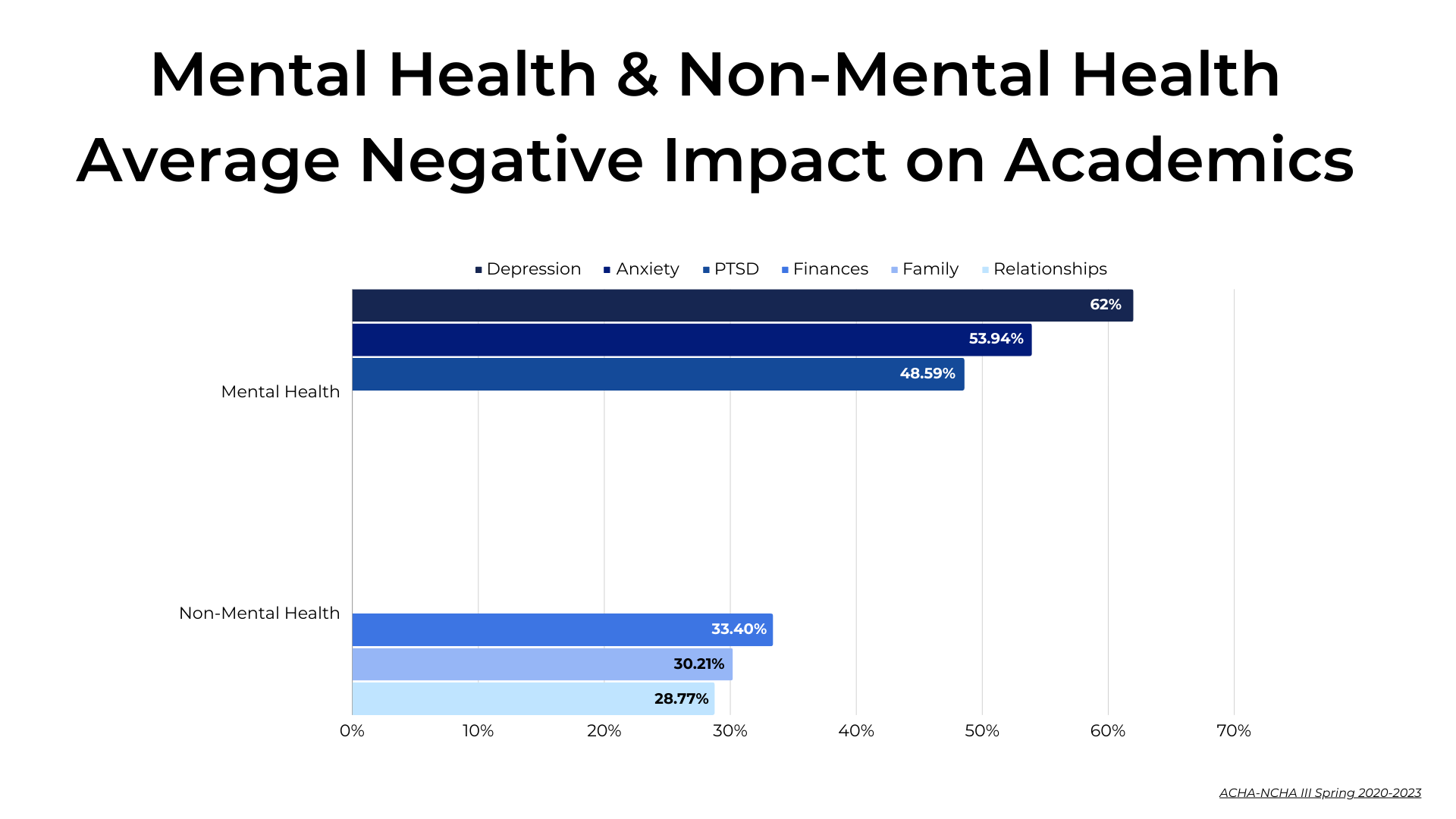
Poor mental health is not an isolated problem. Unfortunately, it can affect one’s academic performance and physical health, starting the stress cycle all over again.
Final Thoughts #
Stress creates a vicious cycle of distress affecting the mind, body, and performance. During a time when cognition, recall, and critical thinking need to be in peak shape, the stress of final exams makes those functions much less effective. Prioritizing self-care is a must during this time period. Whether it's making sure you have enough sleep, keeping up with your therapy appointments, trying mindfulness practices, or other self-care activities, make sure you look after all of yourself during this exam period.
MindLyte Help #
In our next article, we will explore a few coping techniques and the MindLyte activities that can help the most. Also, the MindLyte app has a fantastic guide called "Final Exam Stress". You can access this and other helpful guides for test-taking by downloading the MindLyte app here!